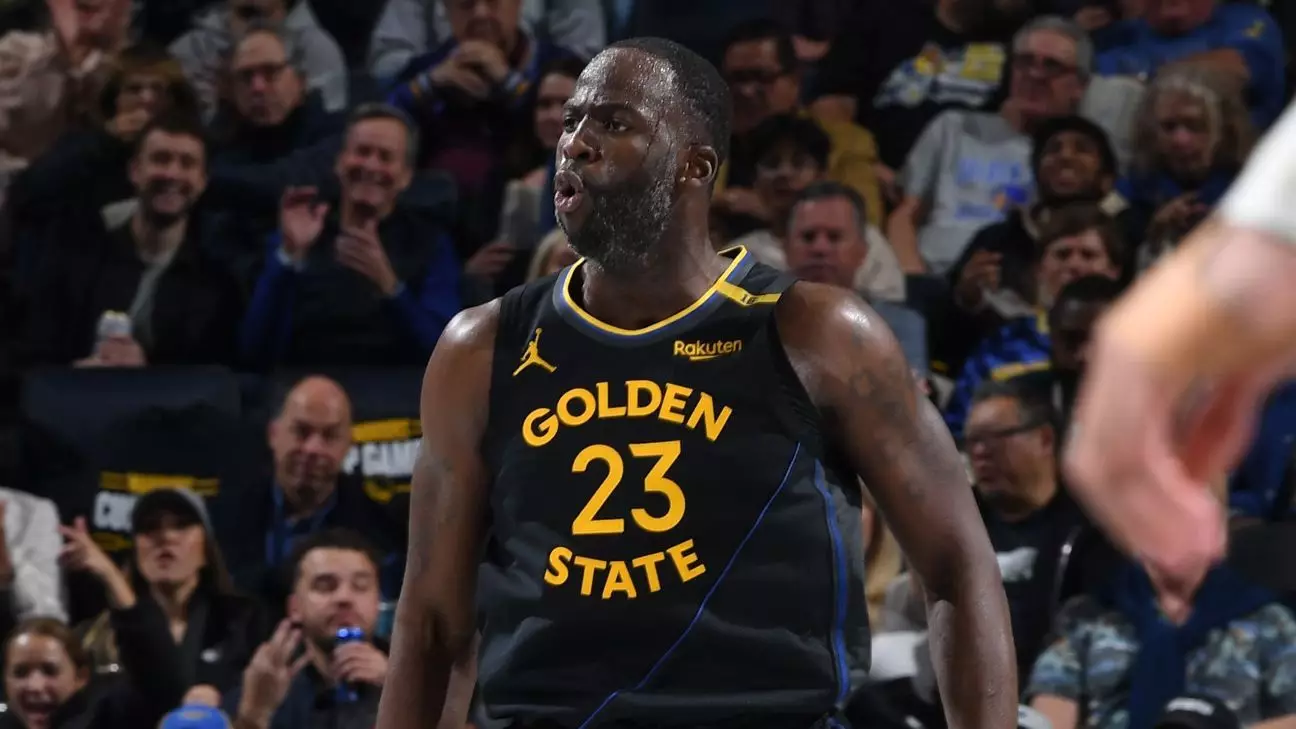The dynamic within professional sports teams can be as turbulent as the games they play. In reflecting on the events surrounding Golden State Warriors’ forward Draymond Green and former teammate Jordan Poole, it becomes evident that conflicts can stem from intense competition and emotional highs. Green recently extended an apology for the infamous incident in which he punched Poole, emphasizing a desire to move past the chapter that unsettled the Warriors’ locker room two years ago. While moving on seems like a simple solution, it’s complicated by the intertwined realities of sportsmanship, personal accountability, and the nuanced nature of relationships within a high-pressure environment.
The altercation, which took place in October 2022, was not merely a physical confrontation; it represented a breaking point in a season filled with high expectations following a championship win. Footage emerged that illustrated the heated exchange, catalyzing discussions about discipline, respect, and leadership in professional sports. Green’s actions, though denounced at the time, are now being framed by him as a part of a larger narrative regarding personal accountability.
In a recent interview on “The Draymond Green Show,” he expressed regret, albeit coupled with a complex understanding of the situation. Green’s admission that he was wrong to strike Poole rings true, yet he also posits that mutual provocation was a factor, creating a conflict that remains rooted in ambiguity. This duality is replicated in the reactions of fans and analysts alike, who grapple with balancing sympathy for Poole with understanding the pressures that accompany professional athletes.
Green’s approach to the incident shines a light on the broader issue of accountability in competitive sports. In his statement, he made it clear that he acknowledges his role in the conflict, yet he also critiqued Poole for invoking memories of the incident, implying that reopening old wounds can hinder progress for both parties involved. This perspective brings to the forefront the importance of not only owning one’s actions but also managing the narrative that follows.
As a professional athlete, Green’s growth is tied to his ability to confront personal failures. Despite the stigma surrounding emotions in sports, particularly for men, Green’s willingness to engage in therapy has been noted as a pivotal turning point. His journey towards personal development emphasizes the need for mental health resources in sports—a field that often favors physical prowess over emotional well-being.
Notably, the repercussions of the altercation extended beyond just a personal rift; they contributed to the Warriors’ performance in subsequent seasons. The team faced challenges in maintaining morale and cohesion as they attempted to regain championship glory. With Poole’s departure to the Washington Wizards, this chapter in their careers serves as a reminder of the fragile balance in team dynamics, particularly following moments of intense conflict.
In the context of the match that reintroduced Poole to the Warriors, Green’s response—though in an apologetic tone—also exhibited a degree of defensiveness. This reaction highlights the struggle many face when navigating past mistakes. The reluctance to let go is not just a personal issue for athletes but is also a narrative that resonates with fans and observers who sometimes hold a grudge against perceived wrongdoings.
Green’s admission of past mistakes has inevitably sparked discussions about the nature of redemption in the public eye. While he has faced suspensions and criticisms for his actions—such as his confrontations with Rudy Gobert and Jusuf Nurkic—it appears he is seeking to redefine how he is perceived. By actively engaging with therapy and counseling, Green aims to reclaim his narrative, showing that accountability can lead to growth rather than a label of failure.
His statement, “I’m not a failure,” encapsulates a powerful message about resilience and the capacity for evolution in both personal character and professional performance. As the Warriors face a new season, it will be interesting to monitor how these narratives of acknowledgment and apology transform into team behavior and player dynamics moving forward.
Draymond Green’s recent apologies illustrate the complex fabric of personal and professional relationships in sports. Navigating the aftermath of conflict requires not only accountability but also empathy for the intertwined emotions of all involved. As he moves forward, both Green and Poole will undoubtedly continue to be scrutinized, but the conversation sparked by their altercation serves as a reminder of the continuous journey toward growth and understanding in the ever-evolving world of professional basketball.


Leave a Reply